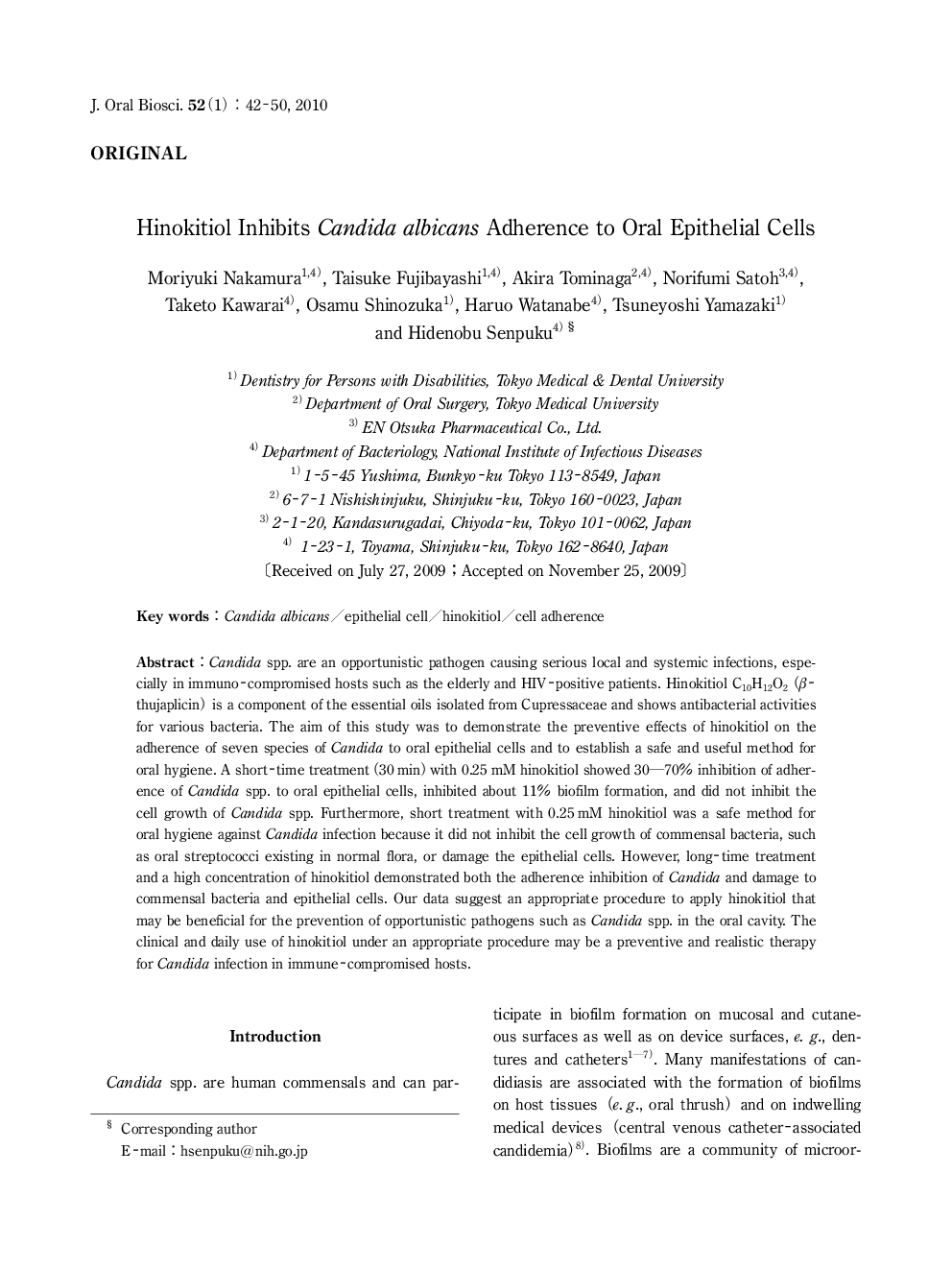| Article ID | Journal | Published Year | Pages | File Type |
|---|---|---|---|---|
| 2776944 | Journal of Oral Biosciences | 2010 | 9 Pages |
Candida spp. are an opportunistic pathogen causing serious local and systemic infections, especially in immuno-compromised hosts such as the elderly and HIV-positive patients. Hinokitiol C10H12O2 (β-thujaplicin) is a component of the essential oils isolated from Cupressaceae and shows antibacterial activities for various bacteria. The aim of this study was to demonstrate the preventive effects of hinokitiol on the adherence of seven species of Candida to oral epithelial cells and to establish a safe and useful method for oral hygiene. A short-time treatment (30 min) with 0.25 mM hinokitiol showed 30–70% inhibition of adherence of Candida spp. to oral epithelial cells, inhibited about 11% biofilm formation, and did not inhibit the cell growth of Candida spp. Furthermore, short treatment with 0.25 mM hinokitiol was a safe method for oral hygiene against Candida infection because it did not inhibit the cell growth of commensal bacteria, such as oral streptococci existing in normal flora, or damage the epithelial cells. However, long-time treatment and a high concentration of hinokitiol demonstrated both the adherence inhibition of Candida and damage to commensal bacteria and epithelial cells. Our data suggest an appropriate procedure to apply hinokitiol that may be beneficial for the prevention of opportunistic pathogens such as Candida spp. in the oral cavity. The clinical and daily use of hinokitiol under an appropriate procedure may be a preventive and realistic therapy for Candida infection in immune-compromised hosts.
